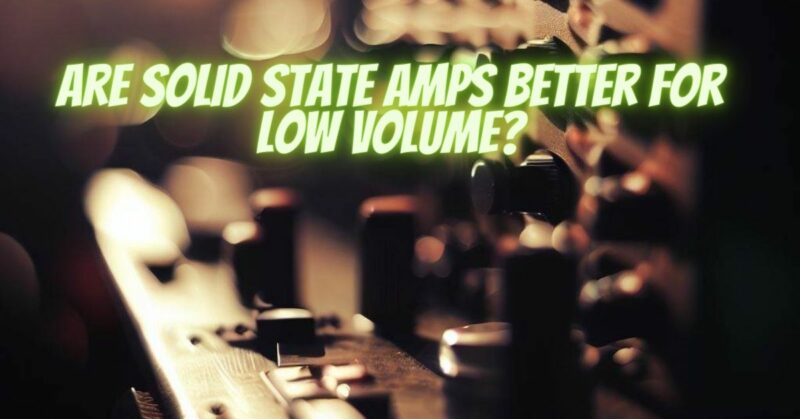Solid-state amplifiers have long been celebrated for their reliability, efficiency, and ability to produce consistent sound across various volume levels. When it comes to playing music at lower volumes, many wonder whether solid-state amps outshine other options like tube amplifiers. In this article, we delve into the characteristics of solid-state amplifiers, their performance at low volume, and whether they are indeed better suited for quieter listening environments.
Understanding Solid-State Amplifiers:
Solid-state amplifiers employ transistors and other semiconductor devices to amplify audio signals. Unlike tube amplifiers, which use vacuum tubes to amplify sound, solid-state amps are known for their precision and low distortion.
Benefits of Solid-State Amps at Low Volume:
- Consistency: Solid-state amplifiers offer consistent performance across a wide range of volume levels. This means that they can deliver accurate and faithful sound reproduction even at low volumes.
- Efficiency: Solid-state amps are generally more efficient than tube amps. They can provide good sound quality without requiring as much power, making them well-suited for low-volume listening.
- Clarity and Detail: Solid-state amplifiers are often praised for their ability to provide clear and detailed sound reproduction, even at low volumes. This can be particularly appealing for those who want to hear subtle nuances in the music without needing to turn up the volume.
- Less Coloration: Solid-state amps are known for their relatively neutral sound signature. This means that they may introduce fewer sonic colorations or distortions when played at lower volumes, leading to a more accurate representation of the original recording.
Considerations:
- Tonality: While solid-state amps are known for their precision and clarity, some audiophiles appreciate the harmonic distortions and warmth that tube amps introduce, even at lower volumes. The tonal preferences of the listener play a significant role in determining whether a solid-state amp is the better choice.
- Cost: Solid-state amplifiers can often be more affordable than high-end tube amplifiers. If you’re looking for a cost-effective solution for low-volume listening, a solid-state amp might be a practical choice.
- Room Acoustics: The acoustics of your listening environment can impact the overall sound quality. Solid-state amps’ accuracy and clarity can highlight imperfections in the room’s acoustics, so proper room treatment might be necessary for the best results.
While both tube and solid-state amplifiers have their own merits, solid-state amplifiers do offer advantages when it comes to low-volume listening. Their consistency, efficiency, and ability to maintain clarity and detail at low volumes make them a compelling choice for those who value accurate sound reproduction. However, the preference for tube amplifiers’ characteristic warmth and harmonic distortions even at lower volumes is a matter of personal taste. Ultimately, the decision between solid-state and tube amplifiers depends on your listening preferences, budget, and the overall sonic experience you wish to achieve in your low-volume listening sessions.


